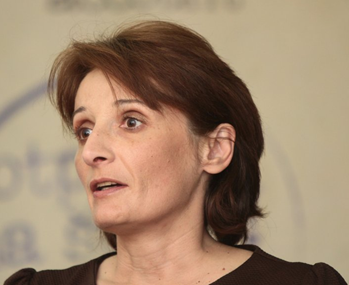
Jan. 2015—Suad Dzindo, the former director of public company Skenderija Center in Bosnia and Hergovina (BiH), has been indicted by a cantonal court in Sarajevo as a result of a whistleblower report by former company bookkeeper Visnja Marilovic.
Dzindo was charged with economic crimes valued at over $750,000 (1 million Bosnian marks) for his actions between 2007 and 2011. The charges include misuse of his position as director of Skenderija by using company funds to renovate his apartment and using business credit cards for personal purchases, including merchandise and hotel rooms.
Marilovic noted that Dzindo repeatedly submitted his expenses for payment to the Skenderija Center bookkeeping office without valid receipts. She expressed her concerns to Dzindo and asked him to provide valid receipts, but to no avail. She then reported the irregularities to the Cantonal Prosecutor’s Office. She was immediately fired.
The indictment comes less than a year after enactment of the law on whistleblower protection, which protects individuals employed in state-level institutions who in good faith report corruption at work. Passage of the law in BiH was the result of a multi-year civic advocacy campaign supported by USAID and implemented through close coordination of four USAID projects, including the ACCOUNT Project.
Marilovic was a strong force behind passage of the new whistleblower law. However, the protection the law provides came too late for Marilovic: If such a law had existed at the time of her whistleblower action, she says, “I would not have lost my job, and those who fired me would be sanctioned.”
Although Marilovic must wait for a final verdict on Skenderija Center's appeal before she can return to work, the indictment is a victory for her and other advocates of the law, and they are now working for passage of similar laws in both BiH entities—the Federation of BiH and Republika Srpska.
Corruption is pervasive in BiH and affects every aspect of citizens’ daily lives, including education, health care, employment and the courts. But the new law only protects whistleblowers in state-level institutions.
“It is of great importance that similar laws are adopted in the Federation of BiH and Republika Srpska as one of the important steps to encourage citizens in BiH not to accept corruption, to report it and to expect that law institutions will sanction those who are involved in corrupt activities,” says Lazar Prodanovic, a state parliamentarian and advocate of whistleblower legislation.
As part of its ongoing development efforts in BiH, USAID plans to launch new activities in 2015 specifically related to anti-corruption and radical transparency.
LINKS







Comment
Make a general inquiry or suggest an improvement.